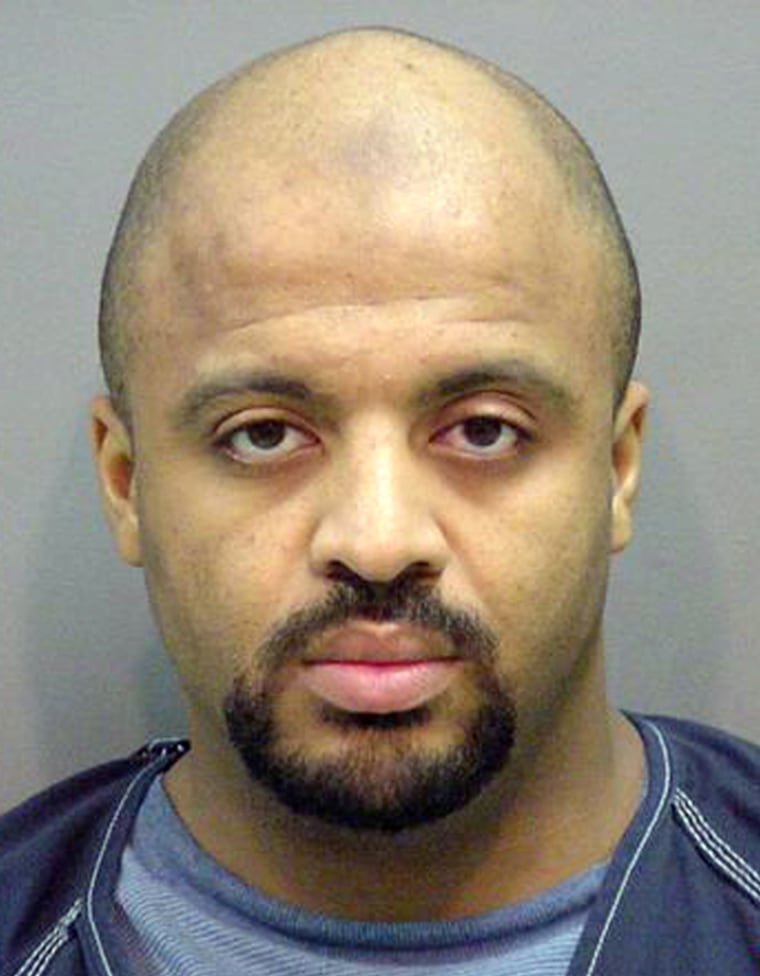Convicted Sept. 11 conspirator Zacarias Moussaoui says he lied on the witness stand about being involved in the plot and wants to withdraw his guilty plea because he now believes he can get a fair trial from an American jury.
U.S. District Judge Leonie Brinkema denied Moussaoui’s request Monday afternoon, saying the motion was “too late.”
In a motion filed Friday but released Monday, Moussaoui said he testified on March 27 that he was supposed to hijack a fifth plane on Sept. 11, 2001, and fly it into the White House “even though I knew that was a complete fabrication.”
A federal court jury spared the 37-year-old Frenchman the death penalty last Wednesday. On Thursday, Brinkema gave him six life sentences, to run as two consecutive life terms, in the federal supermax prison at Florence, Colo.
Explaining his latest reversal, Moussaoui said in an affidavit: “I was extremely surprised” by the life sentence.
Admits fair U.S. trial is possible
“I had thought I would be sentenced to death based on the emotions and anger toward me for the deaths on Sept. 11, but after reviewing the jury verdict and reading how the jurors set aside their emotions and disgust for me and focused on the law and the evidence ... I now see that it is possible that I can receive a fair trial even with Americans as jurors.”
At sentencing, Brinkema told Moussaoui, “You do not have a right to appeal your convictions, as was explained to you” when he pleaded guilty in April 2005. “You waived that right,” she said.
Brinkema said Moussaoui could appeal his sentence but added, “I believe it would be an act of futility.”
Moussaoui’s court-appointed lawyers told the court that they filed the motion even though a federal rule “prohibits a defendant from withdrawing a guilty plea after imposition of sentence.” They did so anyway, they said, because of their “problematic relationship with Moussaoui” and the fact that new lawyers have yet to be appointed to replace them.
The defense lawyers were not immediately available for comment Monday. Brinkema said they would be replaced after they filed any appeal Moussaoui might want.
The motion said Moussaoui told his lawyers Friday that he wanted to withdraw his guilty plea because when he entered it his “understanding of the American legal system was completely flawed.”
New trial sought in affidavit
In an attached three-page affidavit, Moussaoui cited his new opinion of American jurors and wrote that he now believes he has a fair chance “to prove that I did not have any knowledge of and was not a member of the plot to hijack planes and crash them into buildings on Sept. 11, 2001.”
“I wish to withdraw my guilty plea and ask the court for a new trial to prove my innocence of the Sept. 11 plot,” Moussaoui wrote. “I have never met (lead 9/11 hijacker) Mohammed Atta and, while I may have seen a few of the other hijackers ... (in Afghanistan), I never knew them or anything about their operation.”
Explaining his twists and turns, Moussaoui said, “Solitary confinement made me hostile toward everyone, and I began taking extreme positions to fight the system.”
Moussaoui said that, coupled with his inability to get a Muslim lawyer, led him to distrust his lawyers when they told him he could be convicted of being an al-Qaida member but acquitted of involvement in 9/11.
Mistakes about Supreme CourtMoussaoui wrote that he pleaded guilty because he mistakenly thought the Supreme Court would immediately review his objection to being denied the opportunity to call captured enemy combatant witnesses to buttress his claim of not being involved in the 9/11 plot.
An appeals court agreed with the government that national security would be at risk if captured operatives like 9/11 mastermind Khalid Shaikh Mohammed testified or were even questioned by Moussaoui’s lawyers. Instead, statements taken from their interrogations were read to the jury.
Shaikh Mohammed’s statements said Moussaoui was never considered for the 9/11 plot, only a later attack.
Moussaoui shocked the courtroom at his sentencing trial when he recanted his 4-year-old claim of having nothing to do with Sept. 11. When he pleaded guilty in 2005, he had explained that he was to hijack a 747 jetliner and fly it into the White House at some later date if the United States refused to release a radical Egyptian sheik who is serving a life term for terrorist acts in New York.
But when he testified, Moussaoui claimed that the 747 was to be a fifth plane hijacked on Sept. 11 and that Richard Reid, now imprisoned for a December 2001 shoe bombing attempt aboard a trans-Atlantic flight, was to be on his hijacking team.
That testimony revived the government’s flagging case in the first part of the sentencing trial.
Was eligible for death
On April 3, the jury found Moussaoui eligible for the death penalty. It apparently accepted prosecutors’ arguments that by withholding information from federal agents who arrested him on Aug. 16, 2001, he bore responsibility for at least one death on Sept. 11 by preventing the agents from identifying and stopping some hijackers.
Nevertheless, the same jury was unable to unanimously find that Moussaoui, who was in jail on 9/11, deserved execution. Three jurors wrote on the verdict form that they doubted he knew much about the 9/11 plot.
After Moussaoui’s testimony, his lawyers made clear in court that they thought he was lying to achieve martyrdom through execution. Prosecutors even stipulated that the government doubted Moussaoui’s claim that Reid was part of his team. And the judge told lawyers, out of the jury’s hearing, that she doubted his testimony about how much he knew about the Sept. 11 plot.
